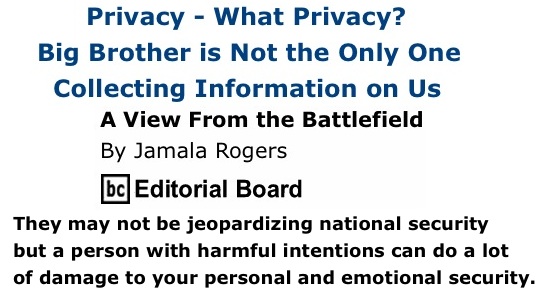




Since
the attacks on the World Trade Center on September 11, 2001, the
erosion of civil liberties has been ratcheted up by the government
under the guise of protecting national security. Before citizens could
blink an eye, the Patriot Act was thrown together and hastily passed by
the Congress. The latest expos� by whistleblower Edward Snowden has
forced an overdue discussion about the balance between civil liberties
and national security.
Ed Snowden is said to have released classified documents that unveil
the covert cooperation of communication giants like Verizon and Google
with NSA through a top secret program called Prism. Snowden claims that
the phone information of millions of Americans is being collected and
surveilled without warrant - and according to many civil liberties
advocates - without cause. The release of the metadata is being called
one of the most explosive security leaks in U.S. history.
Long before 9/11 and long before Snowden, the government and other
entities with varying agendas were collecting data on civilians.
The infamous snooping by FBI Director J. Edgar
Hoover on people’s personal lives helped him to keep six presidents in
check, to destroy leaders and organizations of the Black Liberation
Movement., and to establish job security. (He kept his job until his
death.) President Harry S. Truman once accused Hoover of transforming
the FBI into his private secret police force.
This has become much bigger than the Orwellian Big Brother in “1984.”
Codes on clothing and other products track our spending habits.
Internet cookies store information on us. Any communication created,
sent or received on a computer is pretty much on a server in
perpetuity. Surveillance cameras capture our every move.
Employees in companies and the government have access to our financial,
medical, education, employment and even police records. Just like the
government, these employees can abuse their positions of trust. They
may not be jeopardizing national security but a person with harmful
intentions can do a lot of damage to your personal and emotional
security.
Recently, The Civitas Institute published detailed information about
the Moral Monday protestors at the North Carolina state legislature.
The database included the name, address, party affiliation, employer,
and other details of those arrested at the protests and also included
their mug shot. This is not a new tactic by southern opponents of civil
rights. The names of NAACP members and supporters were published in
newspapers to encourage retaliation back in the 1950s and 1960s. That
retaliation came in different forms from physical attacks to being
denied bank loans to being fired from jobs.
The government, think tanks like The Civitas, social media moguls like
Facebook, etc. aren’t the only ones who can access data about us.
Jilted spouses and lovers, disgruntled employees and a sordid array of
folks have gotten ahold of information that they used for manipulation,
blackmail and character assassination of the supposed foe. One stalker
found his victim’s home through Google Maps and that is where he
murdered her. The loss of personal security to the individual is just
as real as the leaks of Snowden and Julian Assange are to the alleged
compromise of national security.
Not everyone is tuned into the global saga of
Snowden. Most working class people are locked into survival mode,
trying to make it from paycheck to paycheck. The current security leaks
and the privacy issues it has spawned seem like material for a suspense
movie script, not anything that could affect their lives. After all,
they have nothing to hide.
However, we must all be engaged in the conversation about privacy
concerns by starting with the checks and balances necessary to minimize
abuse at all levels. There are many places that collect information on
us. Without our knowledge or consent, they share and sell that
information to others. This country is in a current tug-of-war between
civil liberties and national security. You may not care who the Big
Family is watching today but tomorrow, they may be watching you with
different motives in mind that you will care about.
Today is the day for an informed debate on transparency and
accountability that will protect our civil liberties tomorrow - and our
democracy for generations to come.
BlackCommentator.com Editorial Board member and Columnist, Jamala Rogers, founder and Chair Emeritus of the Organization for Black Struggle in St. Louis. She is an organizer, trainer and speaker. She is the author of The Best of the Way I See It – A Chronicle of Struggle. Click here to contact Ms. Rogers.
 |








